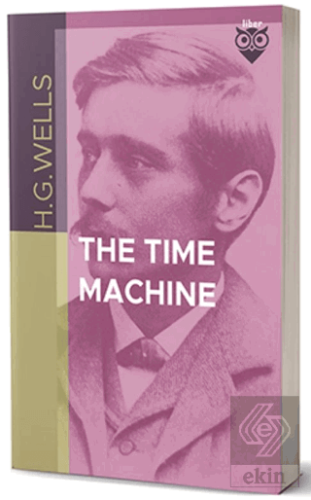
The Time Machine is a post-apocalyptic science fiction novella by H. G. Wells, published in 1895. The work is generally credited with the popularization of the concept of time travel by using a vehicle or device to travel purposely and selectively forward or backward through time. The term "time machine", coined by Wells, is now almost universally used to refer to such a vehicle or device. Utilizing a frame story set in then-present Victorian England, Wells' text focuses on a recount of the otherwise anonymous Time Traveller's journey into the far future. A work of future history and speculative evolution, Time Machine is interpreted in modern times as a commentary on the increasing inequality and class divisions of Wells' era, which he projects as giving rise to two separate human species: the fair, childlike Eloi, and the savage, simian Morlocks, distant descendants of the contemporary upper and lower classes respectively. It is believed that Wells' depiction of the Eloi as a race living in plenitude and abandon was inspired by the utopic romance novel News from Nowhere (1890), though Wells' universe in the novel is notably more savage and brutal.
The Time Machine is a post-apocalyptic science fiction novella by H. G. Wells, published in 1895. The work is generally credited with the popularization of the concept of time travel by using a vehicle or device to travel purposely and selectively forward or backward through time. The term "time machine", coined by Wells, is now almost universally used to refer to such a vehicle or device. Utilizing a frame story set in then-present Victorian England, Wells' text focuses on a recount of the otherwise anonymous Time Traveller's journey into the far future. A work of future history and speculative evolution, Time Machine is interpreted in modern times as a commentary on the increasing inequality and class divisions of Wells' era, which he projects as giving rise to two separate human species: the fair, childlike Eloi, and the savage, simian Morlocks, distant descendants of the contemporary upper and lower classes respectively. It is believed that Wells' depiction of the Eloi as a race living in plenitude and abandon was inspired by the utopic romance novel News from Nowhere (1890), though Wells' universe in the novel is notably more savage and brutal.
| Taksit Sayısı | Taksit tutarı | Genel Toplam |
|---|---|---|
| Tek Çekim | 73,80 | 73,80 |
| 2 | 38,38 | 76,75 |
| 3 | 26,57 | 79,70 |
| Taksit Sayısı | Taksit tutarı | Genel Toplam |
|---|---|---|
| Tek Çekim | 73,80 | 73,80 |
| 2 | 38,38 | 76,75 |
| 3 | 26,57 | 79,70 |


















